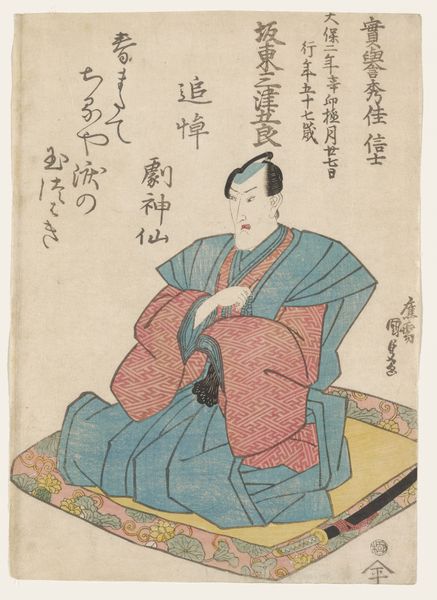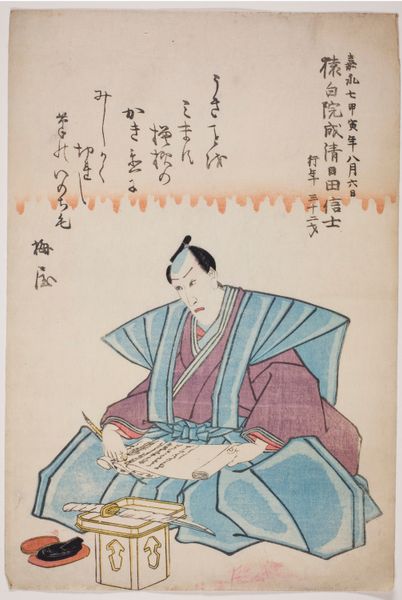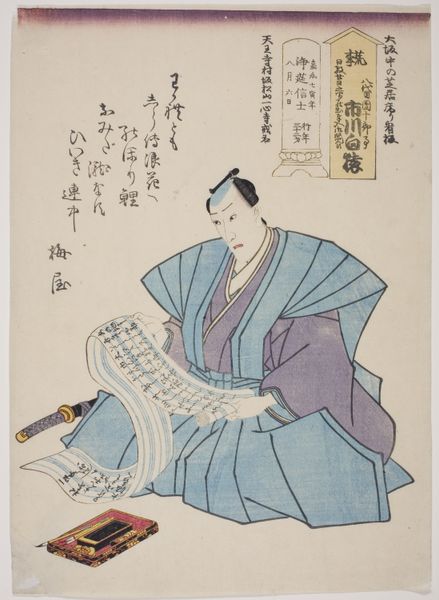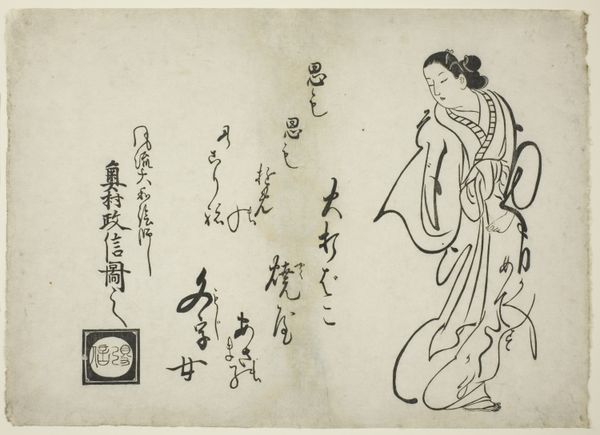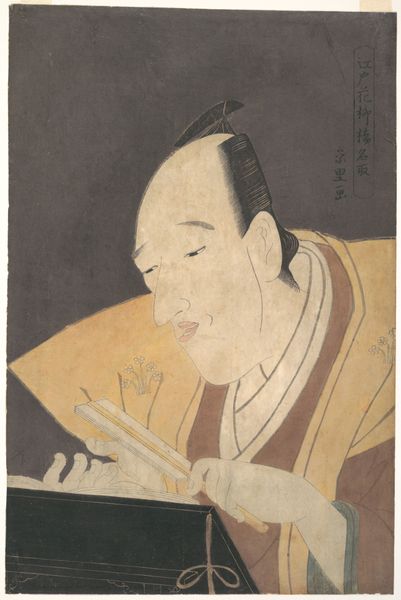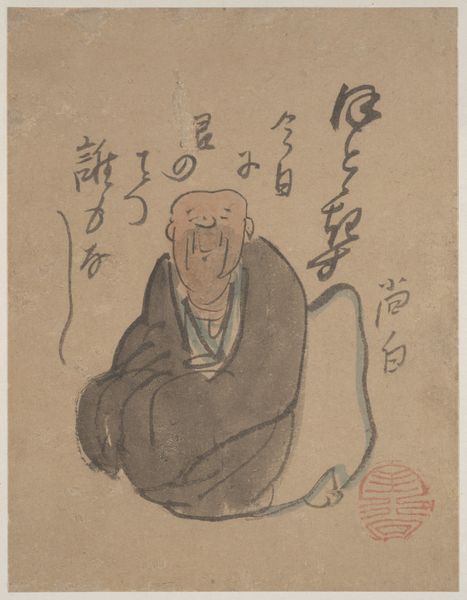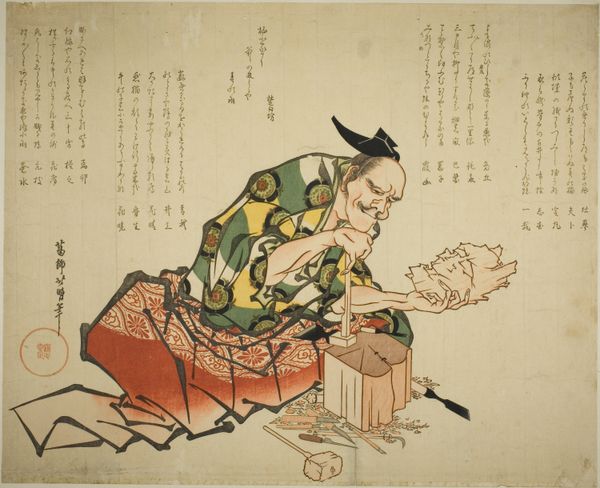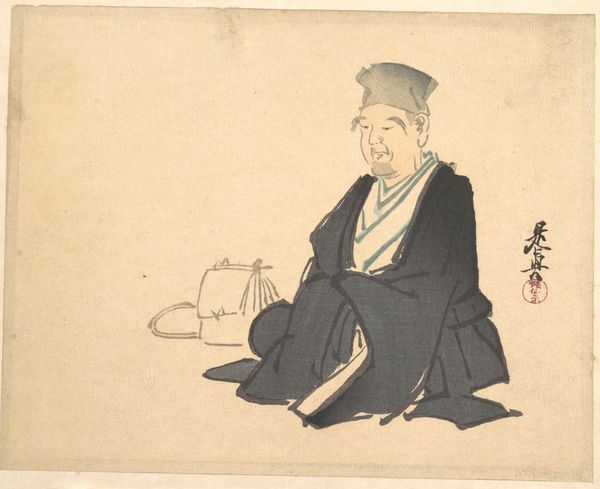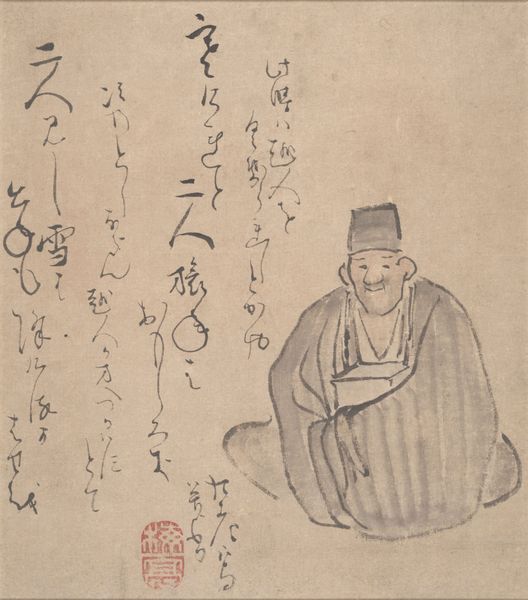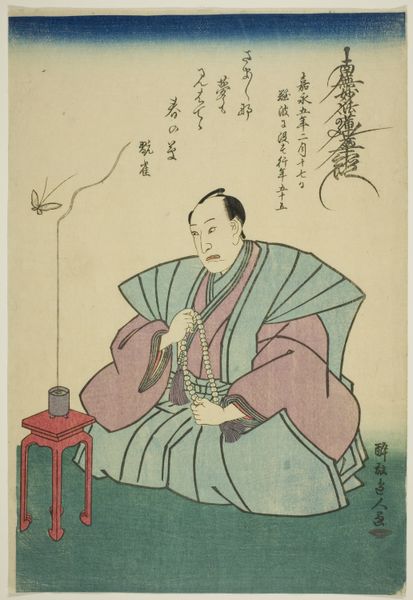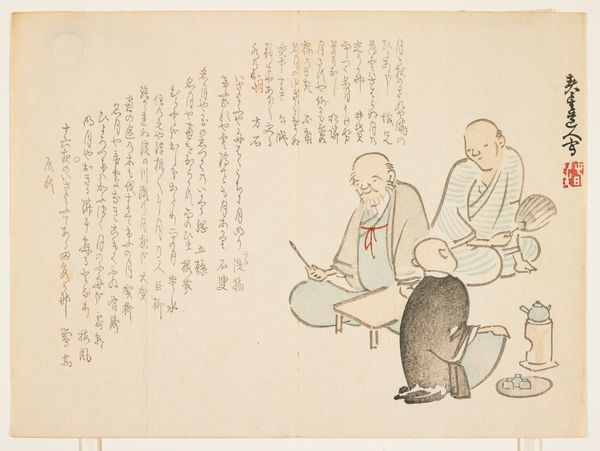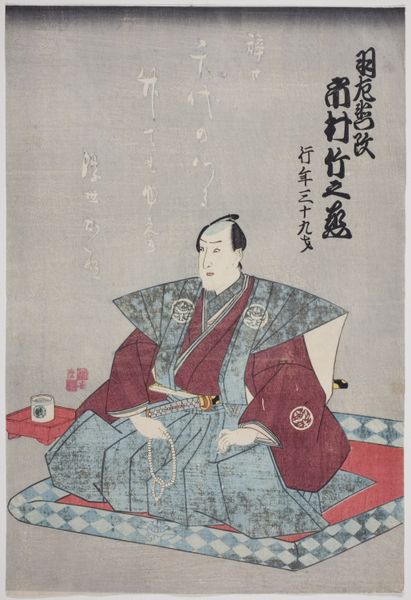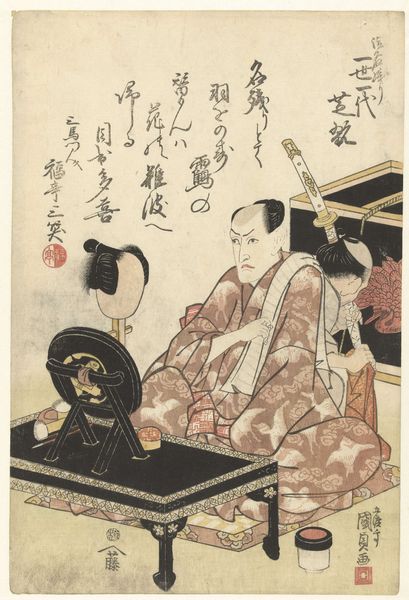
Portraits of Ike Taiga and His Calligraphies in Seal and Grass Styles late 19th - early 20th century
0:00
0:00
drawing, paper, ink, color-on-paper
#
portrait
#
drawing
#
aged paper
#
toned paper
#
ink paper printed
#
book
#
asian-art
#
sketch book
#
ukiyo-e
#
japan
#
figuration
#
paper
#
personal sketchbook
#
ink
#
color-on-paper
#
coloured pencil
#
orientalism
#
sketchbook drawing
#
watercolour illustration
#
sketchbook art
#
watercolor
Dimensions: 1/2 × 5 3/16 × 11 1/8 in. (1.27 × 13.18 × 28.26 cm)
Copyright: Public Domain
This diptych, Portraits of Ike Taiga and His Calligraphies in Seal and Grass Styles, was made by Tomioka Tessai, using ink and color on paper. The materiality of paper, ink, and brush is critical to understanding this artwork; unlike Western painting with its illusionistic depth, here the artist embraces the flat surface. The ink bleeds slightly into the paper, creating soft, blurred edges, while the brushstrokes are clearly visible, giving the portrait a sense of immediacy and spontaneity. The making of this work relies on the artist’s deep understanding of traditional calligraphy and painting techniques. Tomioka’s engagement with these skilled traditions elevates his artwork beyond mere representation, imbuing it with cultural significance. The inscription, executed in a calligraphic style, testifies to the artist’s mastery of script. The use of traditional materials and techniques is tied to wider social issues of cultural preservation and artistic identity. Tomioka consciously aligns himself with a lineage of Japanese artists and intellectuals, asserting the value of traditional arts in a rapidly modernizing world. This artwork challenges traditional distinctions between fine art and craft, by embracing the inherent qualities of its materials and processes.
Comments
minneapolisinstituteofart about 2 years ago
⋮
Tomioka Tessai is counted among the last of Japan’s Nanga painters. A student of poetry, Japanese philosophy, Confucianism, and a variety of painting styles in his youth, and briefly a Shinto priest, Tessai spent most of his life in Kyoto, where he was a leading figure in late Nanga circles. With his friends, the prominent Meiji-period Nanga Tanomura Chokunyū (1814–1907) and Taniguchi Aizen (1816–1899), Tessai helped establish the Japan Nanga Society (Nihon Nanga Kyōkai) in 1896. In the final year of his life, he was conferred with the title, “Artisan of the Imperial Household” (Teishitsu gigei’in).
Join the conversation
Join millions of artists and users on Artera today and experience the ultimate creative platform.
